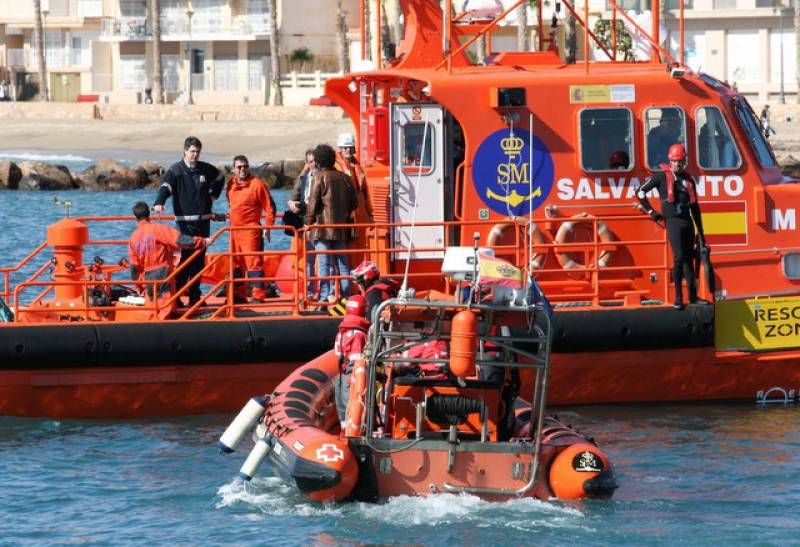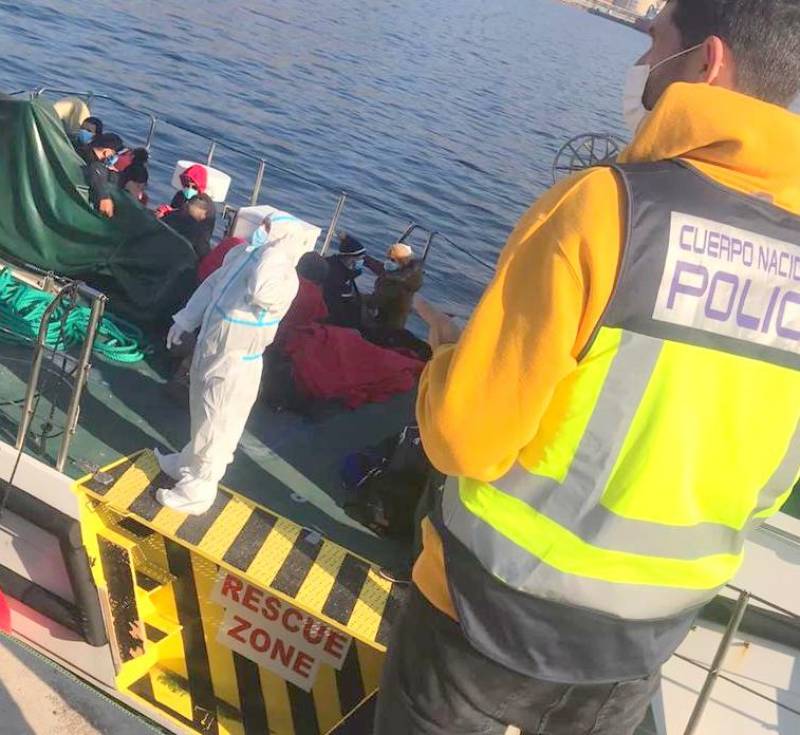Date Published: 06/07/2023
One migrant dies every 4 hours trying to reach Spain by small boat
Almost 1,000 people have died in small boats heading to Spain so far this year, with migrant charity Caminando Fronteras accusing authorities of institutional racism

Crossings by migrants trying to reach Spain by boat claimed 951 lives in the first half of this year, the equivalent of one every four and a half hours, according to the latest report published by the Caminando Fronteras migration monitoring organisation.
Their ‘Right to Life Monitoring’ report, using statistics from Spain’s Ministry of the Interior, has found that the 12,192 people have arrived in Spain by small boat or ‘patera’ between January 1 and June 30, 2023.
Of these, 4,865 were going from Africa to the Strait of Gibraltar, the Alboran Sea and the Balearic Islands (29.2% more than in 2022) and 7,213 were going to the Canary Islands (18.5% less).
Shockingly, almost a thousand people have lost their lives at sea trying to make the crossing in search of a better life in Europe. The majority of them, 778 people, were heading to the Canary Islands, while 102 died on the so-called Algerian Route to the mainland and the Balearic Islands, equivalent to one every two days so far this year.
The deadliest month of the year has been June, with 332 fatalities, followed by February, with 237. In 14 separate cases, the boats involved in these tragedies disappeared with all their occupants.
The countries of origin of those who lost their lives this year, according to NGO Caminando Fronteras, were Algeria, Cameroon, the Ivory Coast, Gambia, Guinea, Ethiopia, Comoro Islands, Mali, Morocco, Democratic Republic of Congo, Senegal, Syria, Sri Lanka and Sudan.
The report goes beyond the count of lives lost and makes an analysis of what is happening on the different routes, with very critical conclusions for both Spain and Morocco.
 The migration charity’s report makes damning accusations of “poor coordination between the countries that must activate the relief services”.
The migration charity’s report makes damning accusations of “poor coordination between the countries that must activate the relief services”.“In the case of Spain and Morocco, the coordination is not based on the right to life, but on bilateral migration control negotiations,” they say.
As an example, they cite the shipwreck of an inflatable boat that occurred on June 21 about 160 kilometres south of Gran Canaria, in which 36 people died, with only two bodies recovered.
The day before, around 8pm, a Spanish plane located the boat and at that moment there was a Maritime Rescue ship, the Guardamar Calliope, helping another boat just 46 kilometers away, an hour away. However, they emphasise, Spain transferred the coordination of that rescue to Morocco, whose patrol boat did not arrive until ten hours later, when the boat had already sunk. Spanish Rescue services claim they acted in accordance with international search procedures with the shipwrecked boat near the Canary Islands.
“Spain first transfers responsibility to Morocco for the protection of life. The Spanish rescue services were closer, with more means and, despite the fact that the deaths could have been avoided, they withdrew so that Morocco could assume coordination,” says the Caminando Fronteras report, which speaks directly to this tragedy of a case of “omission of the duty to help”.
This NGO also criticises the fact that maritime services do not always assume that a boat in the open sea, generally overloaded with people, is an unsafe vessel that is exposed to a serious risk.
“This only applies to migrants, but this is not the case when other groups, such as fishermen or people on pleasure yachts, are at risk,” they say.
Finally, Caminando Fronteras also speak of “institutional racism”, based on the treatment suffered, for example, by the occupants of a boat rescued in May in the south of Gran Canaria, whose occupants reported upon disembarking that they had been shot at on their way out, in Cape Bojador.
Despite the fact that at least one of the survivors complained at the Gran Canaria Arguineguín dock of having suffered gunshot wounds, all of them were transferred to the Temporary Attention Center for Foreigners of Gran Canaria in police detention. The next day, two were admitted to hospitals with gunshot wounds, one woman with a shot in her arm and another man with one in his shoulder blade.
Images: Archive
Contact Spanish News Today: Editorial 966 260 896 /
Office 968 018 268






























